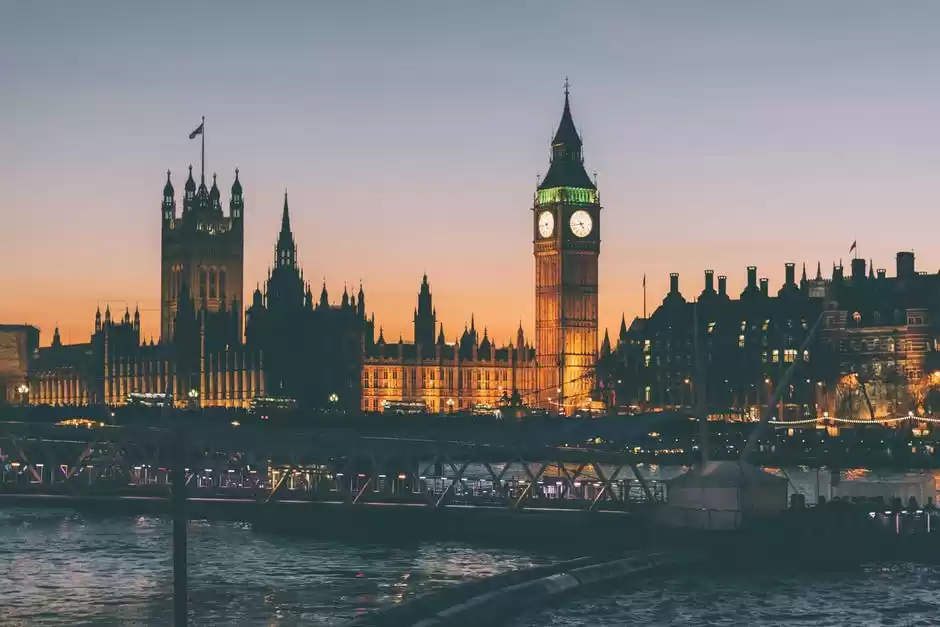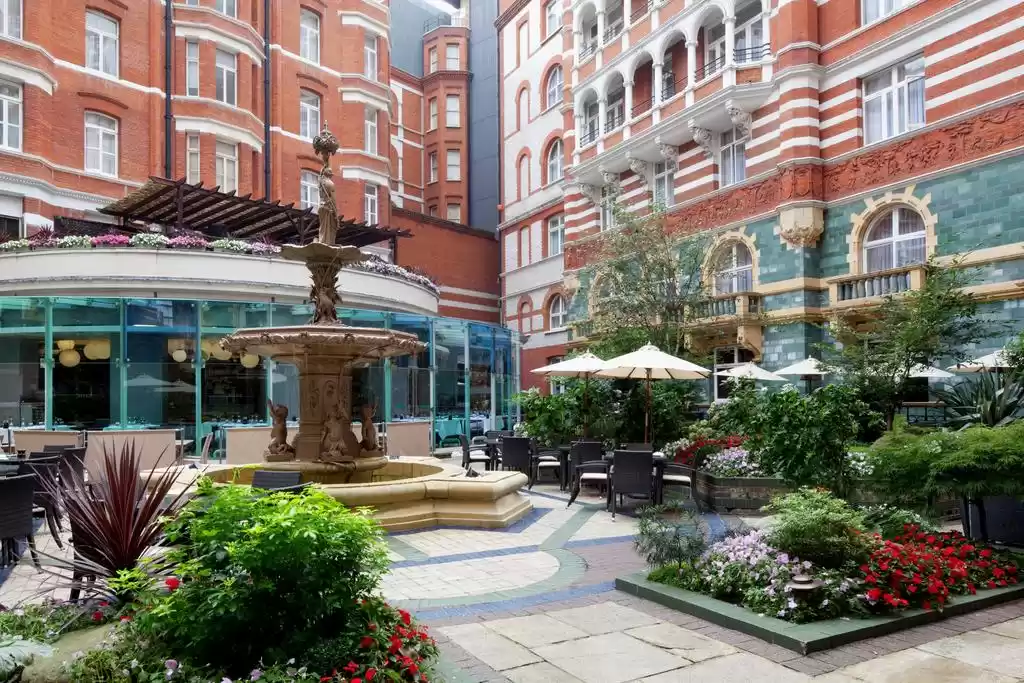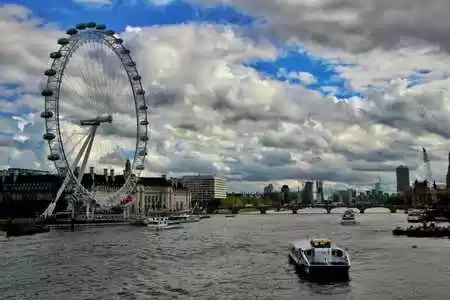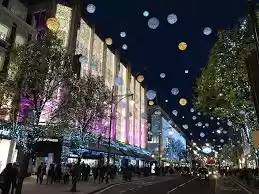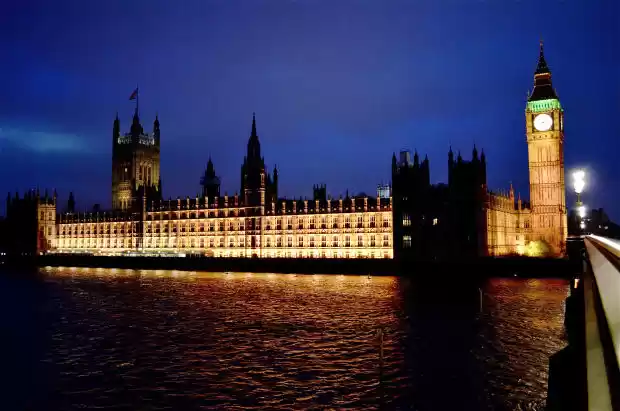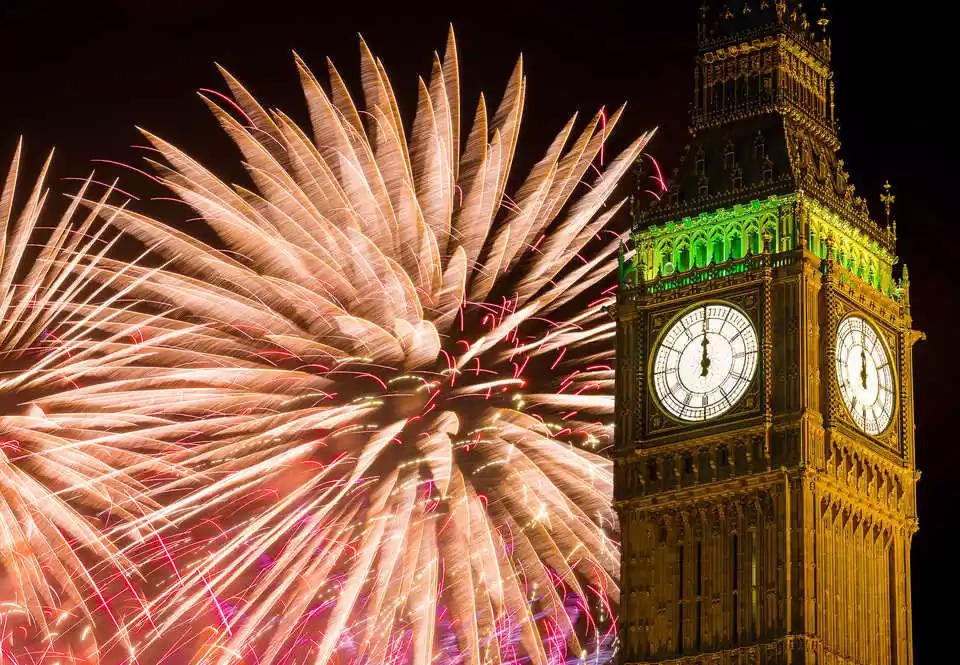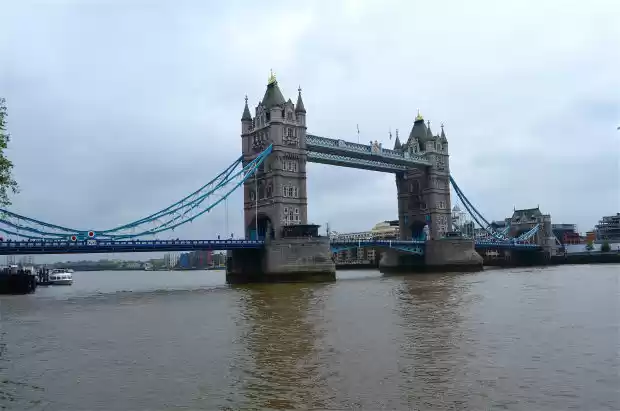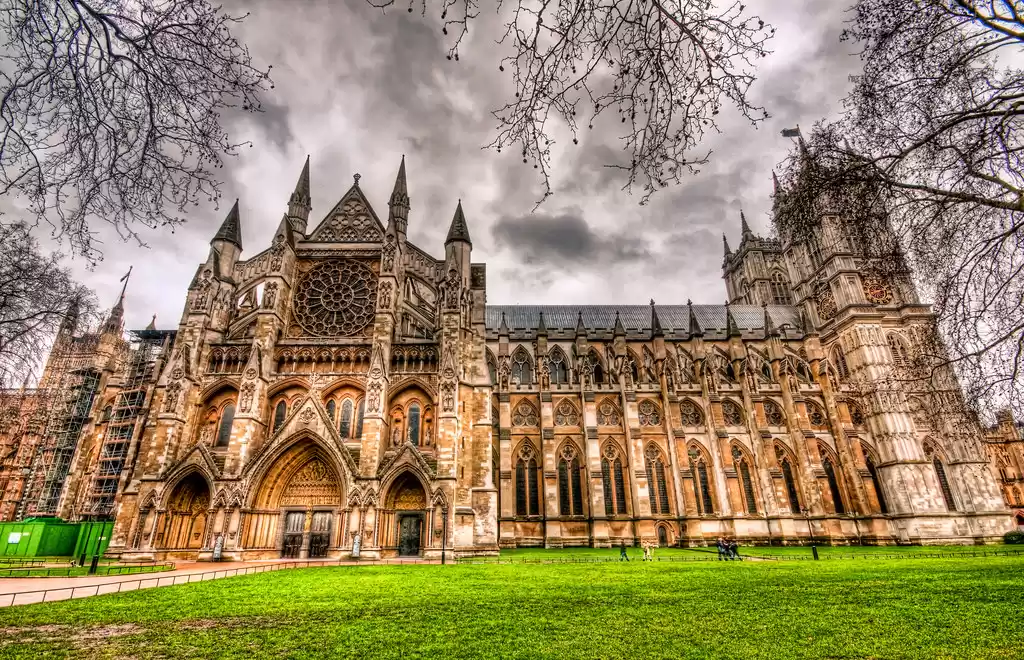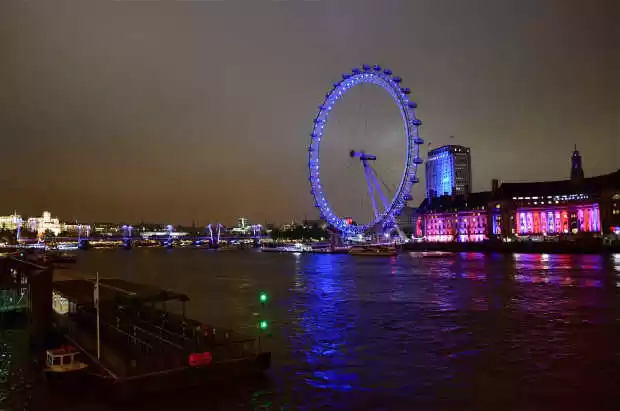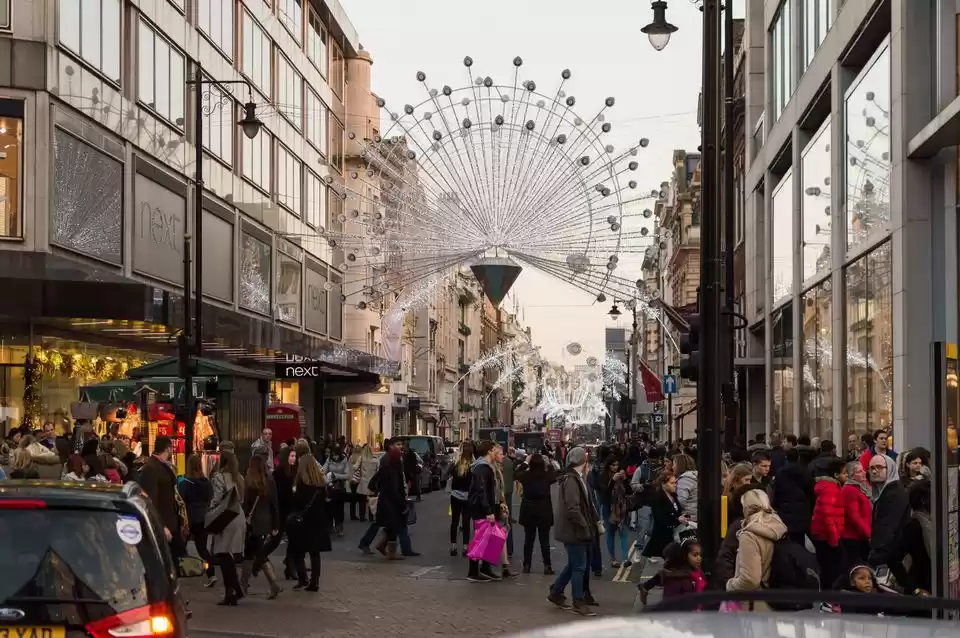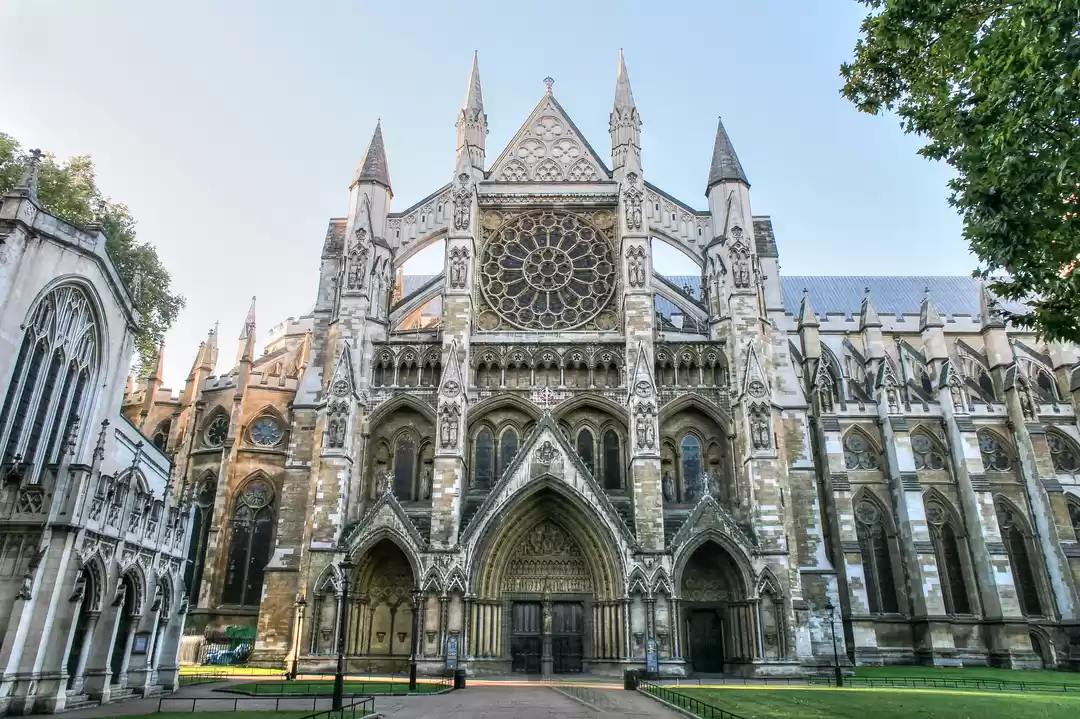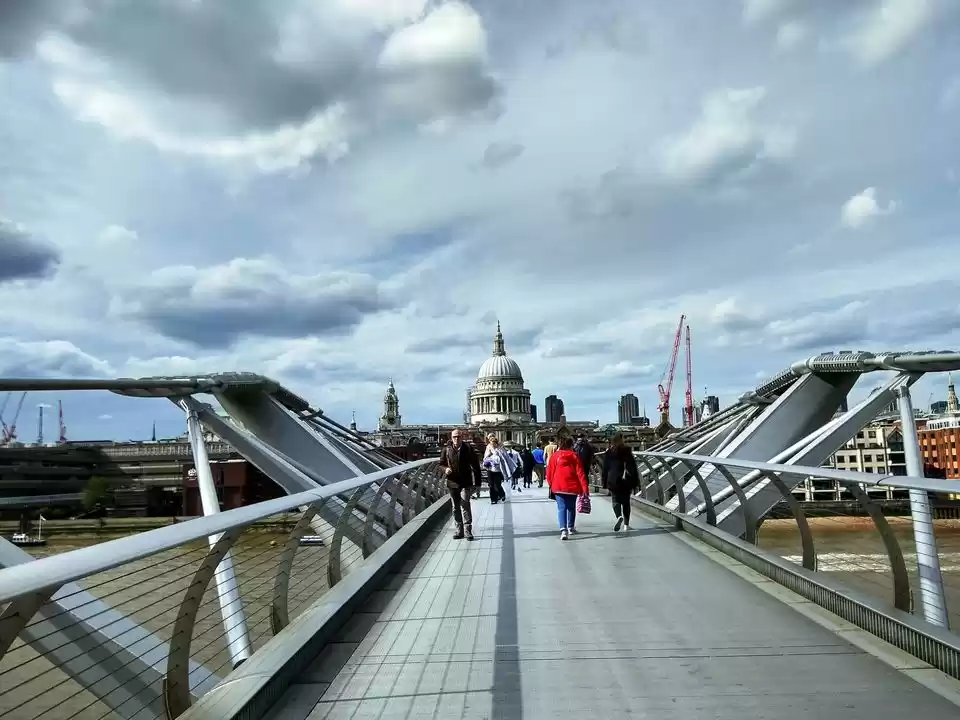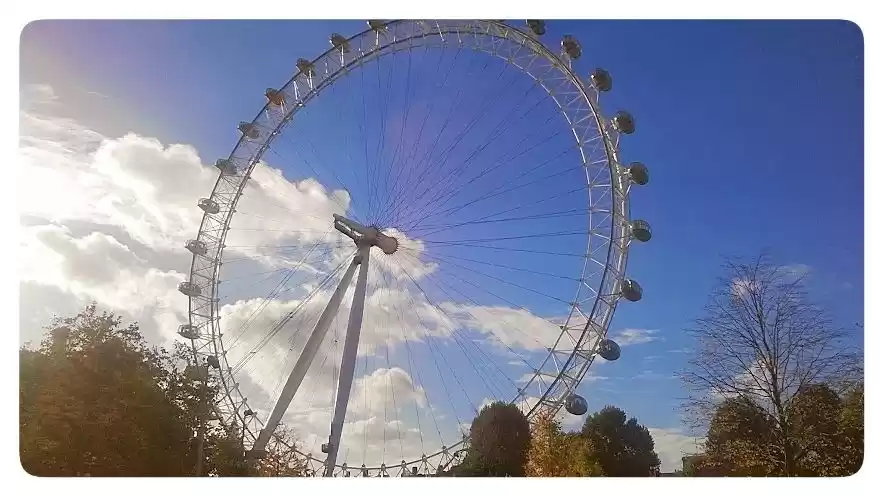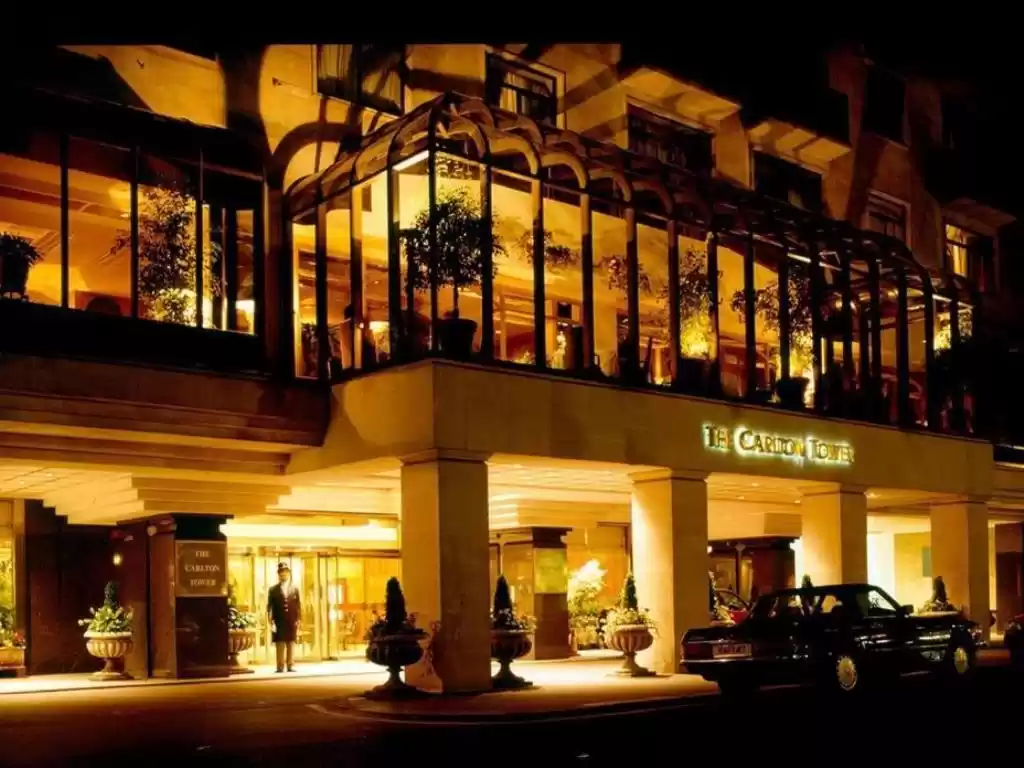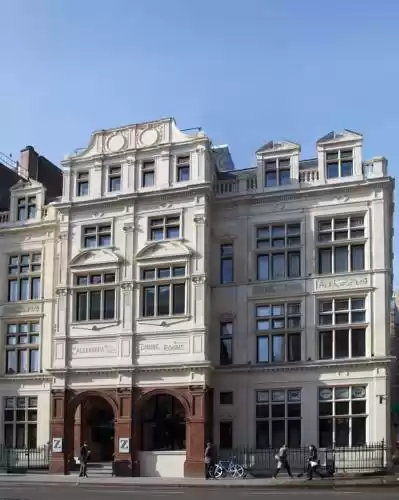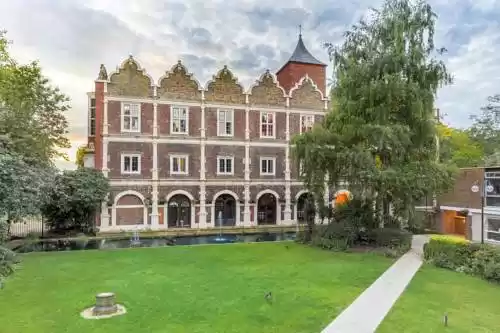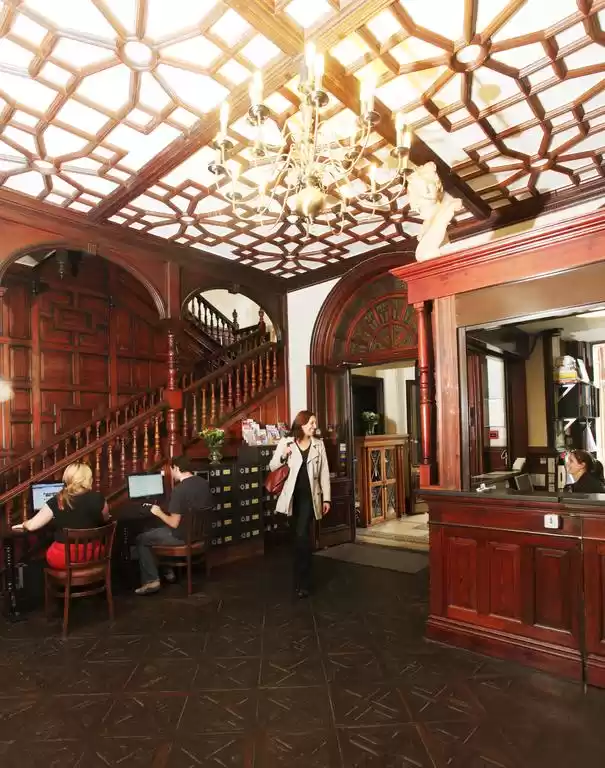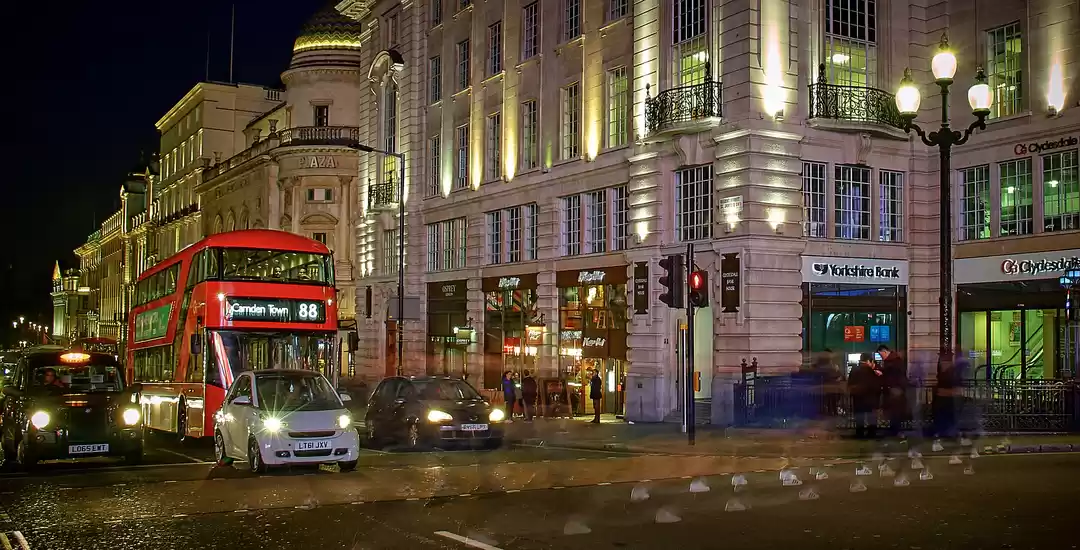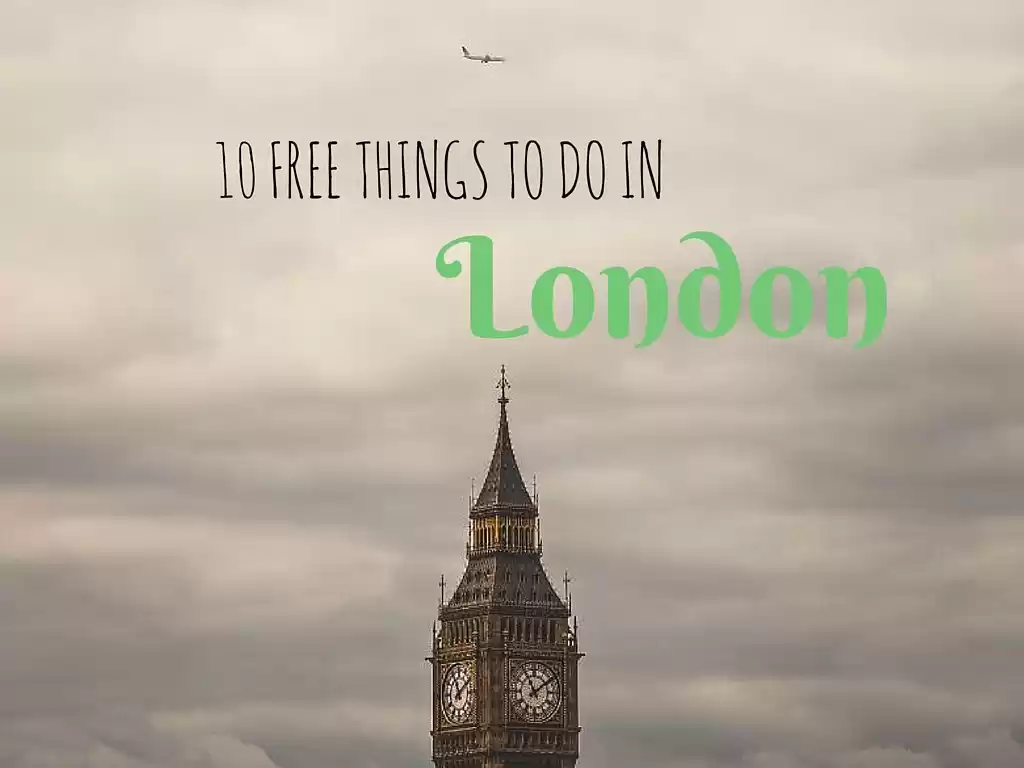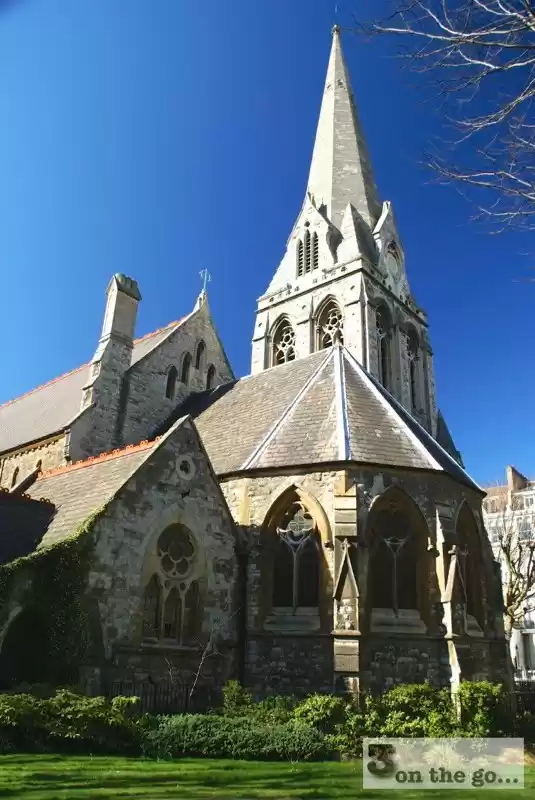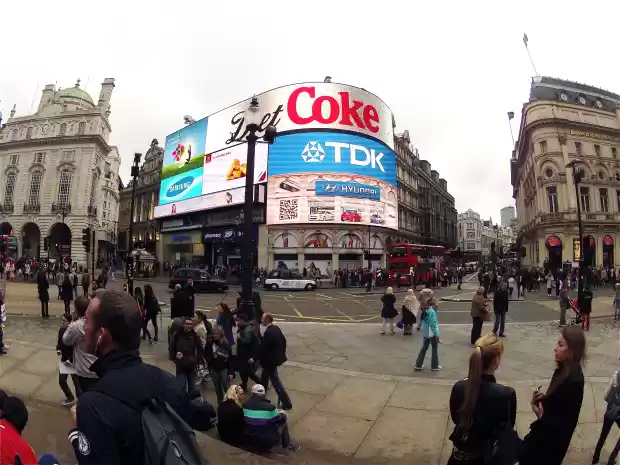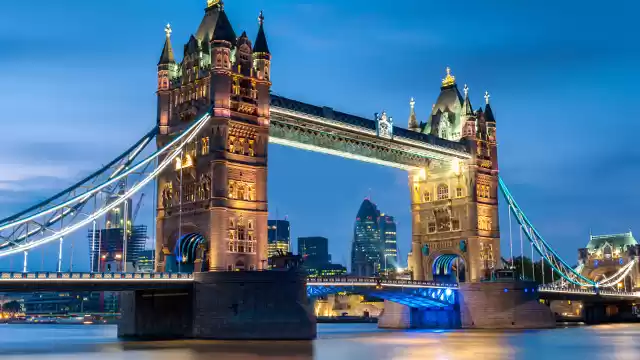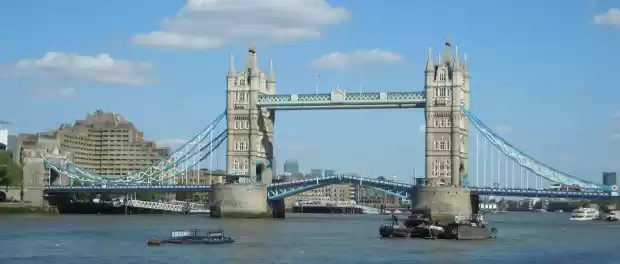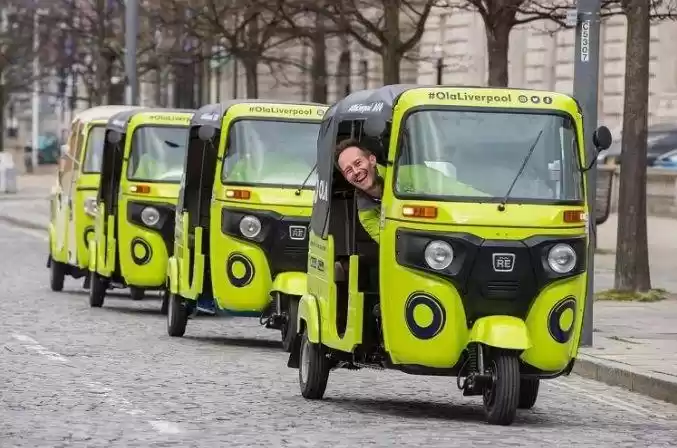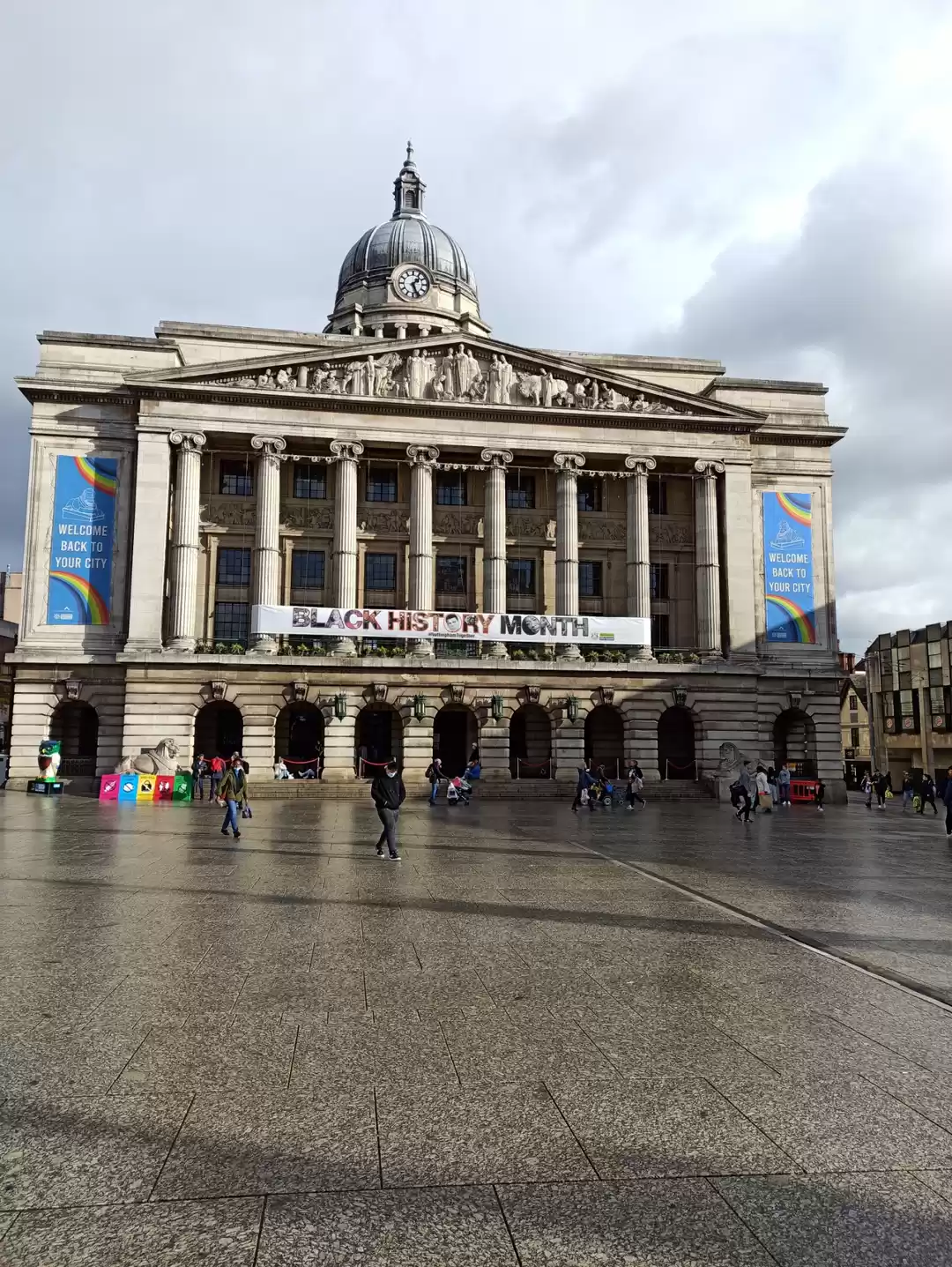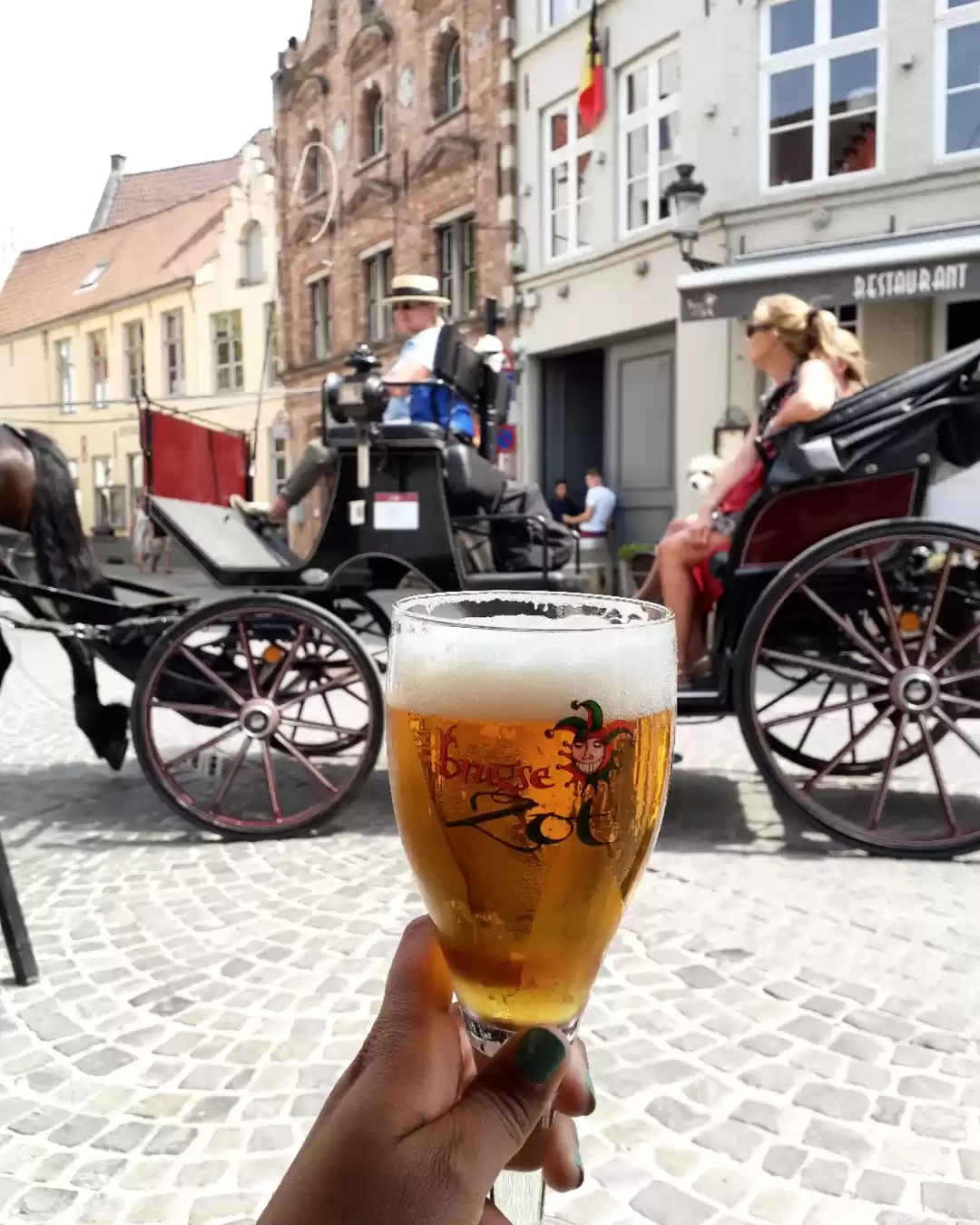London /ˈlʌndən/ is the capital and most populous city of England and the United Kingdom. Standing on the River Thames, London has been a major settlement for two millennia, its history going back to its founding by the Romans, who named it Londinium. London's ancient core, the City of London, largely retains its 1.12-square-mile (2.9 km2) medieval boundaries and in 2011 had a resident population of 7,375, making it the smallest city in England. Since at least the 19th century, the term London has also referred to the metropolis developed around this core. The bulk of this conurbation forms Greater London, a region of England governed by the Mayor of London and the London Assembly. The conurbation also covers two English counties: the small district of the City of London and the county of Greater London. The latter constitutes the vast majority of London, though historically it was split between Middlesex (a now abolished county), Essex, Surrey, Kent and Hertfordshire.London is a leading global city, with strengths in the arts, commerce, education, entertainment, fashion, finance, healthcare, media, professional services, research and development, tourism, and transport all contributing to its prominence. It is one of the world's leading financial centres and has the fifth-or sixth-largest metropolitan area GDP in the world depending on measurement. London is a world cultural capital. It is the world's most-visited city as measured by international arrivals and has the world's largest city airport system measured by passenger traffic. London is the world's leading investment destination, hosting more international retailers and ultra high-net-worth individuals than any other city. London's 43 universities form the largest concentration of higher education institutes in Europe, and a 2014 report placed it first in the world university rankings. According to the report London also ranks first in the world in software, multimedia development and design, and shares first position in technology readiness. In 2012, London became the first city to host the modern Summer Olympic Games three times.London has a diverse range of peoples and cultures, and more than 300 languages are spoken within Greater London. The Office for National Statistics estimated its mid-2014 population to be 8,538,689, the largest of any municipality in the European Union, and accounting for 12.5 percent of the UK population. London's urban area is the second most populous in the EU, after Paris, with 9,787,426 inhabitants according to the 2011 census. The city's metropolitan area is one of the most populous in Europe with 13,879,757 inhabitants, while the Greater London Authority states the population of the city-region (covering a large part of south east England) as 22.7 million. London was the world's most populous city from around 1831 to 1925.London contains four World Heritage Sites: the Tower of London; Kew Gardens; the site comprising the Palace of Westminster, Westminster Abbey, and St Margaret's Church; and the historic settlement of Greenwich (in which the Royal Observatory, Greenwich marks the Prime Meridian, 0° longitude, and GMT). Other famous landmarks include Buckingham Palace, the London Eye, Piccadilly Circus, St Paul's Cathedral, Tower Bridge, Trafalgar Square, and The Shard. London is home to numerous museums, galleries, libraries, sporting events and other cultural institutions, including the British Museum, National Gallery, Tate Modern, British Library and 40 West End theatres. The London Underground is the oldest underground railway network in the world. 'London, United Kingdom Forecast : Weather Underground (weather and elevation at Bloomsbury)' (online). The Weather Underground, Inc. Retrieved 22 August 2014. a b 'Population Estimates for UK, England and Wales, Scotland and Northern Ireland, Mid-2014'. ONS. 25 June 2015. Retrieved 18 October 2015. 'London'. Collins Dictionary. n.d. Retrieved 23 September 2014. 'The World Factbook'. Central Intelligence Agency. 1 February 2014. Retrieved 23 February 2014. 'Roman London'. Museum of London. n.d. Archived from the original on 22 June 2008. Mills 2001, p. 140 'Government Offices for the English Regions, Fact Files: London'. Office for National Statistics. Archived from the original on 24 January 2008. Retrieved 4 May 2008. Elcock, Howard (1994). Local Government: Policy and Management in Local Authorities. London: Routledge. p. 368. ISBN 978-0-415-10167-7. Jones, Bill; Kavanagh, Dennis; Moran, Michael; Norton, Philip (2007). Politics UK. Harlow: Pearson Education. p. 868. ISBN 978-1-4058-2411-8. Lieutenancies Act 1997 Adewunmi, Bim (10 March 2013). 'London: the everything capital of the world'. The Guardian (London). 'What's The Capital Of The World?'. More Intelligent Life. Retrieved 4 July 2013. 'The World's Most Influential Cities 2014'. Forbes. Retrieved 2 March 2015. 'Global Power City Index 2014'. Institute for Urban Strategies – The Mori Memorial Foundation. Retrieved 2 March 2015. Dearden, Lizzie (7 October 2014). 'London is 'the most desirable city in the world to work in', study finds'. The Independent (London). Retrieved 2 March 2015. 'London leads the UK for world-class research'. London & Partners. Retrieved 2 March 2015. 'The Global Financial Centres Index 18' (PDF). Long Finance. September 2015. 'Worldwide Centres of Commerce Index 2008' (PDF). Mastercard. 'Global Financial Centres Index 18' (PDF). Z/Yen. 2015. 'World's Most Economically Powerful Cities'. Forbes (New York). 15 July 2008. Archived from the original on 19 May 2011. 'The Most Dynamic Cities of 2025'. Foreign Policy (Washington DC). September–October 2012. Retrieved 28 September 2012. 'Global city GDP rankings 2008–2025'. PricewaterhouseCoopers. Archived from the original on 19 May 2011. Retrieved 16 November 2010. Calder, Simon (22 December 2007). 'London, capital of the world'. The Independent (London). Teodorczuk, Tom (20 March 2007). 'London is the world capital of the 21st century ... says New York'. London Evening Standard. 'London is world capital of culture says LSE expert' (Press release). London School of Economics. 11 March 2008. 'Cultural Strategy'. Greater London Authority. 6 September 2010. Retrieved 10 February 2012. 'London tops ranking of destination cities'. The Independent (London). 1 June 2011. Retrieved 12 June 2012. 'Beijing to overtake london as world's largest aviation hub'. Centre for Aviation. Retrieved 12 June 2012. 'Global Cities Investment Monitor 2015'. KPMG. Retrieved 27 August 2015. 'Global Investor Intentions Survey 2015'. CBRE. Retrieved 27 August 2015. 'London Top Target for Global Investors, Secondary Markets Gain Popularity'. World Property Journal. Retrieved 27 August 2015. 'Global Retail Report 2014'. CBRE. Retrieved 27 August 2015. Bourke, Joanna (18 May 2015). 'London retains title as world's most international shopping destination'. London Evening Standard. Retrieved 27 August 2015. 'The Wealth Report 2015'. Knight Frank. Retrieved 27 August 2015. Bourke, Joanna (11 March 2015). 'NYC Is No Longer the No. 1 City for the Super-Wealthy'. Curbed. Retrieved 27 August 2015. 'Number of international students in London continues to grow' (Press release). Greater London Authority. 20 August 2008. Archived from the original on 19 May 2011. PricewaterhouseCoopers. 'Cities of opportunity 6 – London takes the top spot'. Retrieved 16 September 2015. 'IOC elects London as the Host City of the Games of the XXX Olympiad in 2012'. International Olympic Committee. 6 July 2005. Retrieved 3 June 2006. 'Languages spoken in the UK population'. National Centre for Language. Archived from the original on 19 May 2011. Retrieved 6 June 2008. 'Largest EU City. Over 7 million residents in 2001'. Office for National Statistics. Archived from the original on 26 July 2007. Retrieved 28 June 2008. 'Focus on London – Population and Migration | London DataStore'. Greater London Authority. Retrieved 10 February 2012. '2011 Census – Built-up areas'. ONS. Retrieved 29 June 2013. 'Metropolitan Area Populations'. Eurostat. 15 April 2015. Retrieved 8 July 2015. 'The London Plan (March 2015)' (PDF). London.gov.uk. The Greater London Authority. Retrieved 7 July 2015. 'London: The greatest city'. Channel 4. Archived from the original on 19 May 2011. Retrieved 12 October 2008. 'Lists: United Kingdom of Great Britain and Northern Ireland'. UNESCO. Retrieved 26 November 2008. 'West End Must Innovate to Renovate, Says Report'. What's On Stage (London). 25 January 2008. Archived from the original on 19 May 2011. Retrieved 15 November 2010. 'Oyster card celebrates 150th Tube anniversary'. BBC News. 10 December 2012. Retrieved 10 January 2013. 'Shanghai now the world's longest metro'. Railway Gazette International (London). 4 May 2010. Archived from the original on 19 May 2011. Retrieved 4 May 2010.

